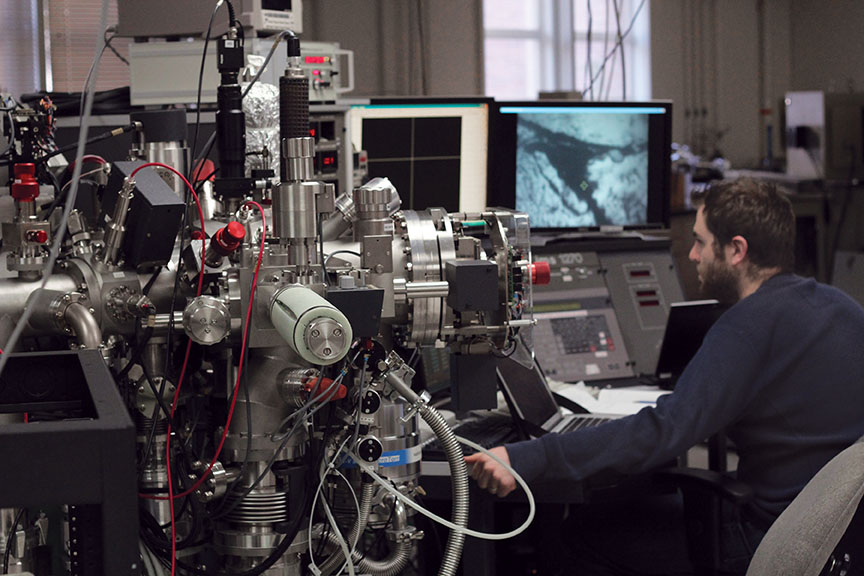 Planetary research at UCLA is unrivaled in its diversity and collaboration among multiple fields and departments. The faculty, researchers, postdoctoral fellows and students of three separate departments (Earth, Planetary, and Space Sciences; Physics and Astronomy; Atmospheric and Oceanic Sciences) make new discoveries and pioneer new research and techniques on a daily basis. The Institute for Planets and Exoplanets serves as a bridging organization through which scientists can advance their research through collaboration and promotion; the common desire of its participants to seek out answers from many perspectives creates a unique and stimulating research environment.
Planetary research at UCLA is unrivaled in its diversity and collaboration among multiple fields and departments. The faculty, researchers, postdoctoral fellows and students of three separate departments (Earth, Planetary, and Space Sciences; Physics and Astronomy; Atmospheric and Oceanic Sciences) make new discoveries and pioneer new research and techniques on a daily basis. The Institute for Planets and Exoplanets serves as a bridging organization through which scientists can advance their research through collaboration and promotion; the common desire of its participants to seek out answers from many perspectives creates a unique and stimulating research environment.
The range of research topics undertaken by planetary researchers at UCLA is as vast as space itself. Planetary scientists study the interiors, surfaces, atmospheres, hydrospheres, and  biospheres of planets, satellites, asteroids, and comets. Space physicists probe the mysteries of space weather and planetary magnetic fields. And astronomers and laboratory researchers attempt to better understand the formation, growth, and structure of both our solar system and systems around other stars. To learn more about a particular area of research, visit our Research Areas page.
biospheres of planets, satellites, asteroids, and comets. Space physicists probe the mysteries of space weather and planetary magnetic fields. And astronomers and laboratory researchers attempt to better understand the formation, growth, and structure of both our solar system and systems around other stars. To learn more about a particular area of research, visit our Research Areas page.
The techniques used in these areas of research are as diverse as the topics themselves and are constantly being improved upon or reinvented. Our scientists often use multiple approaches utilizing more than one technique, such as numerical and computer modeling, experimental modeling, and observation. In addition, the laboratory facilities available at UCLA are diverse and cutting-edge; some examples include MegaSIMS, SPINLab, and the W.M. Keck Foundation Center for Isotope Geochemistry laboratory. Click here to see a full listing of UCLA’s planet-related laboratories and facilities.
UCLA faculty, researchers, postdoctoral fellows and students maintain high scientific visibility through their concentrated focus on thorough and innovative research. Scientific research results are constantly published in top journals and presented at international conferences & symposia, regularly winning distinctions and awards.
Follow Iplex